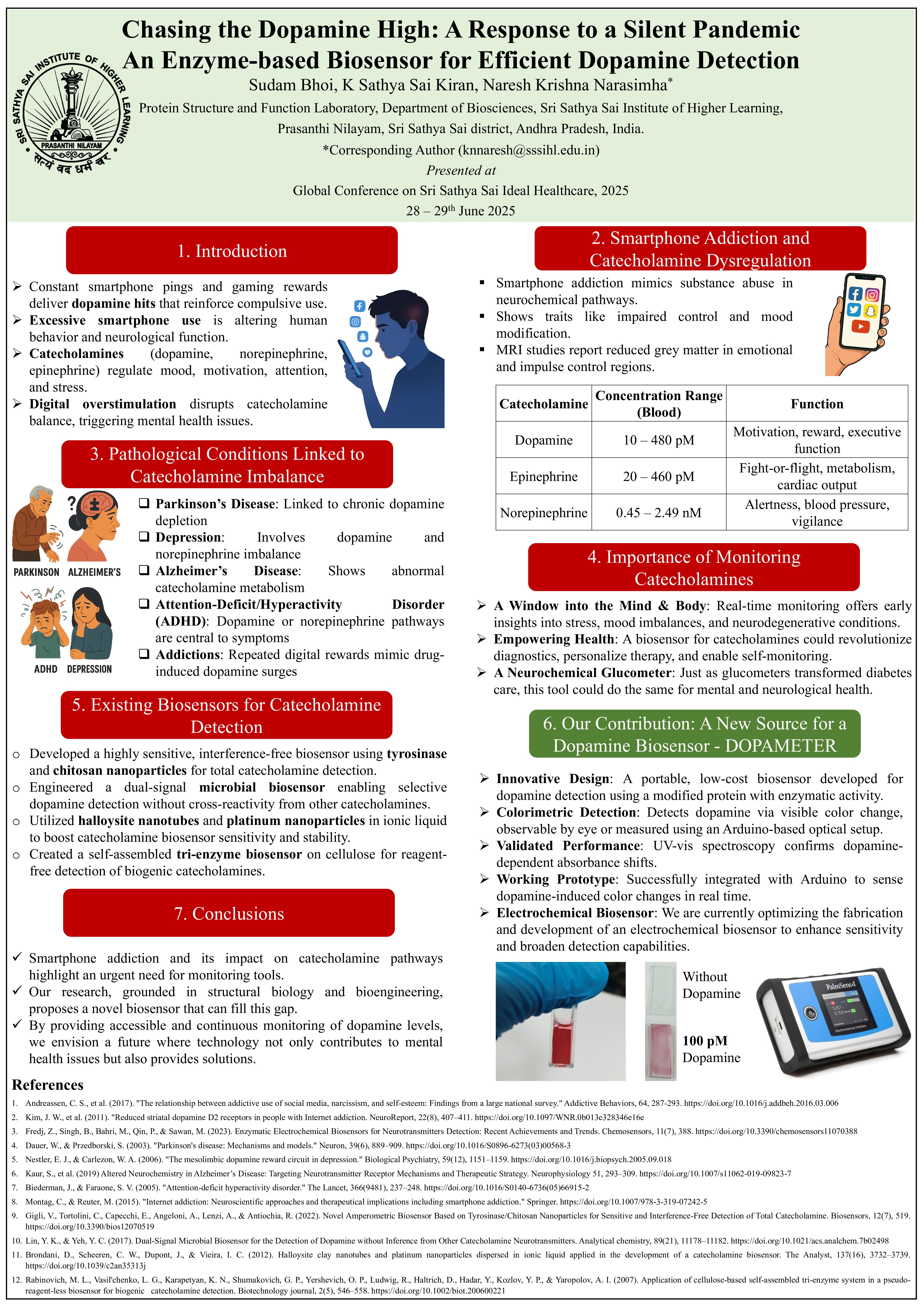The team at the Protein Structure and Function laboratory dives deep into the marvels of protein structure and function to unravel the mechanisms of their activity functioning as enzymes. Specifically, enzymes that catalyze reactions involving physiologically important substrates are of immense interest to the team. Currently, the team is working on application of thermostable enzymes to fabricate biosensors to detect dopamine and other catecholamines that play a crucial role as chemical messengers in the human body. The team is highly motivated and focused directing their efforts to realize the ultimate goal of building a point-of-care portable ‘DOPAMETER’ to monitor deranged levels of dopamine in the blood, akin to ‘GLUCOMETER’ that has become a part of every household with diabetic patients to monitor blood glucose levels periodically. Dopamine and other catecholamines have a unique physiological niche in the human body acting as biochemical bridges to maintain physical as well as mental homeostasis of individuals. Imbalance in the levels of Dopamine and other catecholamines in the human body has long been known to cause various pathological conditions such as Parkinson’s disease, Alzheimer’s disease, Attention Deficit Hyperactivity Disorder (ADHD), Depression and Addiction. The team recognizes the raising concern of seemingly harmless human behaviour of getting hooked to the addictive social media that are manipulatively designed to trigger ‘dopamine hit’ in the users making them hanker for more and more and more of reels or shorts or likes or comments on various online platforms. Now the question is “Don’t we need a handy device that can help us realize whether we are sliding down the slippery slope of addictive dopamine cycle?”. Towards that, could DOPAMETER be the fitting solution?

